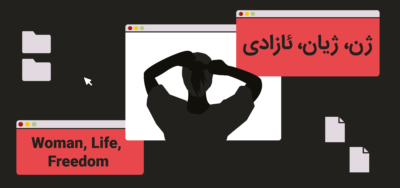This month, Iran experienced its most severe internet shutdown incident since the November 2019 protests. News of deadly clashes between Islamic Revolutionary Guard Corps (IRGC) and fuel traders in the southeastern province of Sistan and Baluchestan broke on 22 February, sparking a number of protests in the province. The escalation of protests led to a localised, near total Internet shutdown in the province, which lasted at least three days.
While Iranian officials – including ICT Minister Mohammad-Javad Azari Jahromi – chose to remain silent about the human rights violations taking place in the province, both the Supreme Council for Cyberspace (SCC) and the Majles made headlines for a number of other major internet policy decisions.
Iran’s Majles approved a number of measures during its annual budget review which threaten to raise internet costs for users in Iran, while the SCC took its first steps towards combating the dissemination of “disinformation” online, publishing the text of a concerning new resolution.
Our monthly Network Monitor supplements this report with a technical analysis of network disruptions and internet shutdowns. Take a look at it to get a better sense of how internet disruptions affected Iranian users in February.

Sistan and Baluchestan Endures Near-Total Internet Shutdown Following Crackdown on Protestors
On 24 February the cybersecurity and digital rights researcher Amir Rashidi reported a widespread internet shutdown in the city of Saravan, in the southeastern province of Sistan and Baluchestan. The reports came following the outbreak of protests in the city, after clashes between fuel traders and the Islamic Revolutionary Guard Corps (IRGC). According to information received by the Baloch Activists Campaign (BAC), IRGC forces opened fire on fuel traders during clashes, killing ten and injuring five. Amnesty International has also confirmed the use of lethal force against fuel traders.
The incident sparked protests in the city of Saravan, with protestors gathering outside the city’s governorate and IRGC station on 23 February; the protestors were reportedly met with tear gas and a number of people were arrested as a result. Following the escalation of protests, mobile internet connections were severely disrupted and eventually cut off entirely on Iran’s major mobile operators, including the Mobile Telecommunication Company of Iran (MCI), Irancell, and Rightel. These shutdowns were observed in the cities of Zahedan, Khash, Saravan, Iranshahr, and Zabol. During Iran’s November 2019 Internet shutdown, mobile connections were the first to be affected before a total shutdown was implemented.
Internet disruptions continued until at least 27 February, however, due to the localised nature of the shutdown and poor internet infrastructure in the province it is difficult to determine if local internet connectivity has fully returned to normal.
Filterwatch condemns the implementation of internet shutdowns under any circumstances, especially in light of Iran’s record of using internet shutdowns to obscure reporting of gross human rights violations. A more detailed breakdown of the events in Sistan and Baluchestan can be found here.
The Supreme Council for Cyberspace Publishes the Text of New Resolution to “Combat False Information”
On 13 February the Supreme Council for Cyberspace (SCC) published the text for its resolution concerning “false information”, titled “Document on Preventing and Combating the Dissemination of Misinformation and Fake News and Content”. The resolution represents Iran’s first attempt at creating a legal framework on the subject.
The resolution calls for the Judiciary to introduce a bill for combatting “false news” within three months. The bill is to be developed in collaboration with the National Centre for Cyberspace (NCC), the Ministry of Culture and Islamic Guidance (MCIG), and the ICT Ministry. The bill is required to include appropriate sentencing, as well as setting out the obligations and responsibilities for owners of news outlets and online platforms.
The MCIG has been given several responsibilities, including “identifying and verifying” publication outlets at national and provincial levels, and forming an “information database” to support collaboration with outlets, with priority to be given to “popular” outlets. These measures are also required to take place within three months. The MCIG is also responsible for creating a mechanism for the “comprehensive monitoring and verification” of news, and for the creation of a “reference platform” to raise awareness about “false news and information”. The MCIG is also required to collaborate with the Foreign Ministry in order to create an “information collection mechanism” for establishing points of contact with foreign messaging apps about the publication of false information. The resolution has ambitions to engage with foreign platforms on “false information”. Foreign platforms therefore must be aware of the potential human rights implications of complying with such measures.
The Foreign Ministry has also set its own obligations by using “diplomatic and legal opportunities” to take action against “authorities responsible for disseminating false information against national interests and national security”.
Incentives to pass legislation on combatting the dissemination of disinformation have intensified in recent years, especially in the wake of the COVID-19 pandemic. However given the pre-existing restrictions on press freedom and freedom of expression inside Iran, Filterwatch is extremely concerned that the new resolution and any forthcoming legislation will be used to silence government critics – especially in the run up to Iran’s presidential elections in June. Additionally, these new measures could result in further self-censorship on the part of both individuals and the press, if users perceive that their online speech could expose them to prosecution.
Filterwatch’s in-depth analysis of the resolution and its implications for the upcoming elections can be found here.
Online ‘Influencers’ to be Subject to Tax Based on Number of Followers
On 23 February, Iran’s Majles approved a new amendment to the draft budget for the next Iranian calendar year, subjecting social media accounts with over 500,000 followers to tax measures. These measures will be made applicable to accounts on platforms such as Instagram, Telegram, and other similar social media platforms. It also extends to any platforms currently filtered in the country. The National Tax Administration (NTA) is to issue instructions relating to tax collection from the accounts, and will seek its approval from the Finance Minister two months after this new measure becomes applicable. The NTA is also made responsible for preparing a list of taxpayers and self-declared incomes. It is required to make this list publicly available on its website.
Further details of how this article would be implemented are not clear, and the draft budget will still need to be approved by the Guardian Council.
Majles Approves 10% Tax Increase for Telecommunication Operators
On 23 February the Majles also approved a 10% tax increase for telecommunication operators in the draft budget for the next Iranian calendar year, increasing taxes on their revenues from 28% to 38%.
The proposed increase is projected to bring in 30,000 billion IRR, which is to be set aside to “support online content creation, cultural activities and oversight in cyberspace”. The issuing of licences and oversight of online content and cultural activities is under the control of the Iranian Audiovisual Media Regulatory Authority – also known by its Persian acronym SATRA – which operates under Islamic Republic of Iran Broadcasting (IRIB).
In a tweet, ICT Minister Azari Jahromi said that the move would cause a “significant increase” in internet prices, a sentiment which was shared by the Deputy ICT Minister and Head of the Communication Regulatory Authority, Hossein Fallah Joshghani.
This is the latest blow to the ICT Ministry in its ongoing struggles with the IRIB and the Majles. Any potential price increases will have an impact for internet users inside Iran, especially during this period of increased dependence on online services as a result of the COVID-19 pandemic.
Until this clause comes into force, it is unclear how and if any internet price increases will manifest. The cost of accessing domestic internet is currently calculated at a lower rate than international traffic, and so price rises are likely to disproportionately impact on access to international services.
According to Seyed Yaser Rayegani, Director General for Communication for the Mobile Telecommunication Company of Iran (MCI) (also known as Hamrah-e-Aval), the increase in taxes is only applicable to operators whose licences expire in the next Iranian calendar year (March 2021 to March 2021). As such, these rises will not be applicable to MCI, whose license remains valid until 2023.
National Centre for Cyberspace to “Take Measures to Deal with Satellite Internet”
According to the Secretary to the SCC, Abolhassan Firouzabadi on 14 February a new working group has been established at the NCC to engage with the question of emerging satellite internet services.
Firouzabadi stated that the arrival of international satellite internet services could “bring the National Information Network (NIN) under question, if the NIN cannot provide faster, cheaper and better services with more variety”. He suggested that more attention should be paid to fixed-line internet services “which have not had adequate expansion, which is the fault of the ICT Ministry”.
Satellite internet services could potentially be used to circumvent internet shutdowns, however satellite internet for at-home use is not available in Iran. The NCC’s exertion of control over satellite internet could preclude such services being made available to Iranian internet users.

Over 660,000 Broadband Users Disconnected from the Internet in Khorasan Razavi Province
According to Peivast, on 1 February ADSL connections for 660,000 users in Khorasan Razavi province were disrupted from 10:00am local time due to “infrastructural faults”. According to the Communication Regulatory Authority (CRA), Khorasan Razavi province has 660,193 fixed broadband users. Telecommunication Company of Iran (TCI) was reportedly reconnected with severe disruptions, while other networks remained disconnected for at least the remainder of the day.
First 5G Sites in the City of Mashhad Unveiled
In an unveiling ceremony on 23 February, two 5G sites were launched by the TCI in the city of Mashhad. The new 5G sites follow the launch of locations in Tehran. There has been increased ICT investment in the city of Mashhad as part of an increased focus on bringing ‘Smart City’ features to the city.
Telecommunication Infrastructure Company’s Board Member: “Over 80% of Domestic Sites Hosted Inside the Country”
In a speech at the “Localisation of the National Information Network” event on 23 February, Dr Behzad Akbari, a member of the Telecommunication Infrastructure Company (TIC)’s Board of Directors stated that Iran has seen “very good growth” in domestic data traffic. He subsequently claimed that Iran is “one of the few countries that hosts over 80% of its domestic sites inside the country”.
Filterwatch cannot independently verify this claim, however, the localisation plans for the NIN emphasise the need for content and services to be hosted domestically. This gives Iranian authorities greater access and control over these services, which can place the security and privacy of Iranian internet users at risk.

Domestic Messaging App BisPhone Ceases Operation
On 16 February, it was reported that the Iranian messaging app Bisphone had notified its users that it would cease operating from 5 March 2021. According to its statement, there were “various reasons” behind the decision, and the app is “hoping to return after resolving [its] issues”.
Bisphone has been operating for eight years and was a one of the three domestic messaging apps – alongside Soroush and Gap – which received a 50 billion IRR (estimated 1,187,507.40 USD) loan from the ICT Ministry in early 2018. Bisphone’s Executive Director Millad Movahedeen confirmed that the company intends to pay back the loan “in full”. According to Movahedeen, the decision to stop operating was a “business decision”.
Bisphone is now the second ICT Ministry-backed messaging app to experience financial struggles. Soroush, which is part-owned by Islamic Republic of Iran Broadcasting (IRIB), was put up for sale over a year ago. The two apps have struggled to attract and maintain their user bases despite the blocking of major international messaging apps such as Telegram, which maintains a substantial user base inside Iran. ICT Minister Azari Jahromi claims that the filtering of Telegram has “prevented the growth of domestic messaging apps”.
A number of other domestic messaging apps are continuing to operate, such as Bale, Gap, and Rubika. The failures so far of domestic messaging apps to compete with their international counterparts could potentially see more stringent policies implemented to restrict access to international platforms, along with further incentives for users to migrate to domestic apps.
Such measures are already being implemented; this month, during the budget review process in Iran’s Majles, a new measure was approved to calculate the data usage costs for domestic apps at 20% of the rate for international apps.
There are concerns about the security and privacy of domestic messaging apps compared to their international counterparts, especially as they allow for greater control by Iranian authorities. For example, in our evaluation of BisPhone in our report “Digital Rights & Technology Sector Accountability in Iran: The Case of Messaging Apps”– which ranked a number of domestic and messaging apps based on their commitment to international human rights standards – the app scored an 15.22 out of a total of 100, which was the second lowest after Gap messenger. The highest score belonged to WhatsApp at 48.19.
Iranian MP Left Unable to Attend an Inter-Parliamentary Union Meeting Due to “Sanctions”
In a tweet on 18 February Elham Azad, MP for Khur and Biabanak County claimed that she was unable to attend an online Inter-Parliamentary Union (IPU) meeting due to the accessibility of the platform as a result of “sanctions”.
Though Elhami did not mention the name of the platform, a number of video conferencing platforms such as Zoom are not accessible in Iran. Filterwatch has already written about the continued impact of international sanctions on restricting Iranian users’ access to the global internet.

.Iran Domain Name Formally Launched
On 9 February the (.Iran), ( .ایران) in Persian was officially launched after gaining approval from ICANN. According to Abuhassan Firouzabadi, the launch of the new domain is an “important step in realising the goals of the NIN”. He added that the new domain will be overseen by a committee at the National Centre for Cyberspace.
The planning for the NIN includes an emphasis on domestic content and services, which are also subject to greater levels of state oversight and control.

Iran Cloud Contract Reveals Concerning Clauses on Surveillance and Internet Shutdowns
On 25 February Twitter users highlighted clauses from the publicly available partnership agreement between Arvan Cloud and the Iranian Information Technology Company (ITO) – specifically article 4 of the ‘Public-Private Partnership Agreement’ – which raised questions and concerns on the role of the “Iran Cloud” project in localisation of Iran’s internet.
Filterwatch has continuously expressed concerns over the control exerted by Iranian authorities over domestic infrastructure and services, which are a vital part of the NIN’s localisation plans. These services are at high risk of being used to expose Iranian internet users to increased security and privacy risks.
These clauses are described as “national security”-related measures. However, in the absence of legal limits, checks and balances, the absence of an independent Judiciary, and Iran’s track record on these issues, broad and ambiguous concerns such as “national security” can be abused to infringe on Iranian’s human rights. The Iranian private technology sector must do much more to protect the privacy and security of their users and acknowledge their human rights obligations to their users.




